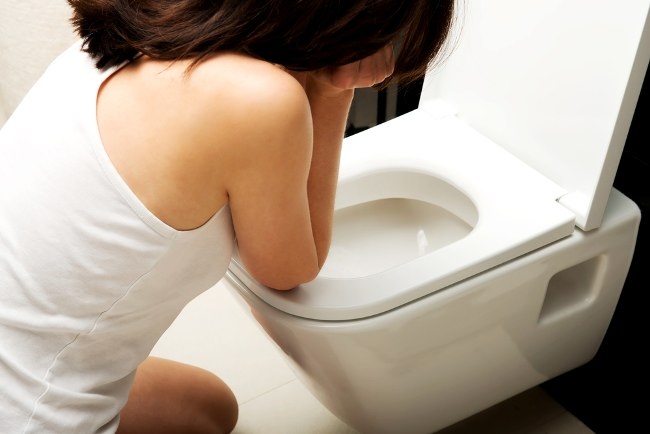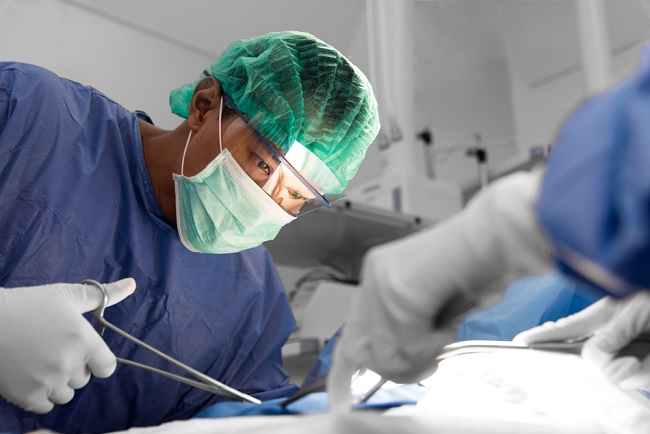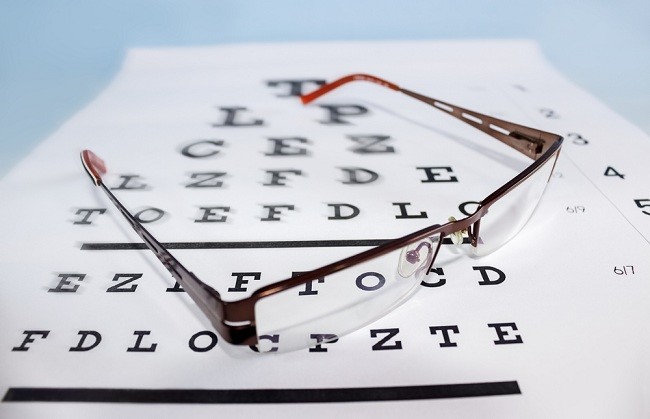Malabsorption or malabsorption syndromepSi is a collection of symptoms caused by impaired absorption of one or more nutrients in the small intestine. This condition can be caused by various things.SOne of them is inflammation of the intestines.
Malabsorption syndrome can result in a person experiencing nutritional deficiencies or malnutrition. If experienced by children, nutritional deficiencies caused by malabsorption syndrome can affect their growth and development. One of the signs is the weight and height of children who are lower than children his age.

Causes of Malabsorption
Normally, the process of digestion and absorption of food will go through 3 stages, namely the process of processing food in the intestine, absorption of nutrients by the intestinal mucosal layer, and the process of flowing these nutrients throughout the body through the bloodstream. Food malabsorption can occur if there is a disturbance in one or more of the three stages.
Some of the diseases and conditions that can cause malabsorption are:
- Have pancreatic disease, eg chronic pancreatitis
- Have liver or gallbladder disease, such as inflammation of the liver or biliary atresia (absence of bile ducts)
- Suffering from diseases of the intestines, such as celiac disease, short small bowel syndrome, or colitis
- Have had surgery, such as bariatric surgery or removal of part of the small intestine
- Suffering from an infectious disease, such as giardiasis, cryptosporidiosis, helminth infection, or HIV/AIDS
- Have cystic fibrosis, cow's milk protein allergy, lactose intolerance, or congenital glucose-galactose malabsorbption
- Long term use of laxatives or antibiotics
Symptoms of Malabsorption
Malabsorption can include impaired absorption of macro (protein, fat and carbohydrates) or micro (vitamins and minerals) nutrients. Patients with malabsorption often feel they have eaten a nutritionally balanced diet but still feel complaints.
This absorption disorder will cause various complaints and symptoms, ranging from persistent diarrhea to malnutrition.
If described further, some of the symptoms that can appear when a person experiences malabsorption are:
- Bloating and discomfort in the stomach
- Stool that is light in color, looks oily, has a bad smell, or is sticky
- Continuous diarrhea
- Losing weight
- Dry skin
- Low blood pressure
- Anemia
- Hair loss
- Malnutrition
- Edema (fluid buildup), can be characterized by swelling of the legs
- Weak muscles
- tingling
- night blindness
In women, malabsorption can cause disturbances in the menstrual cycle, and can even cause menstruation to stop. While in children malabsorption can be characterized by disturbances in growth and development. Growth disorders can be characterized by weight or height that is less than normal.
When to go to the doctor
Check with your doctor if you experience symptoms of malabsorption as mentioned above. For those of you who have disease conditions that can cause malabsorption, such as celiac disease or inflammatory bowel disease, do regular check-ups according to the schedule given by your doctor.
See a doctor right away if you or your child have severe stomach pain or persistent diarrhea. You also need to take your child to the doctor if he has developmental problems.
Malabsorption Diagnosis
Malabsorption often causes symptoms similar to those of other diseases. To determine the diagnosis of malabsorption and determine the underlying cause, the doctor will ask questions about complaints and symptoms as well as medical history, including diseases that have been suffered and drugs that have been consumed.
Next, the doctor will perform an examination, including to see whether there is weight loss, edema, or muscle disorders, which could indicate impaired absorption or malabsorption of certain nutrients.
Then to determine the cause and confirm the patient's condition, the doctor will carry out supporting examinations which include:
- Complete blood test, to detect signs of infection and see levels of vitamin B12, folate, vitamin D, calcium, phosphorus, iron, and albumin
- Breathing test, to check for the presence of hydrogen gas which could indicate that a person is lactose intolerant.
- Stool test, to check for fat in the stool which can indicate fat malabsorption
- CT scan, to see the condition of organs that play a role in the digestive system, including the liver, pancreas, or gallbladder
- Biopsy by taking a sample of small intestine tissue, to see whether there are abnormal tissue or cells in the intestine
Malabsorption Treatment
The goals of treatment for malabsorption are to relieve symptoms, treat the underlying disease, and prevent complications. Here are some of the things that methods do to treat malabsorption:
Fulfillment of body fluids
Patients with malabsorption often have chronic diarrhea. Chronic diarrhea is prone to causing dehydration which can be fatal. Fulfillment of fluid needs can be done by giving ORS or water if the patient can still drink. If this is not possible, the fulfillment of fluid needs can be done through intravenous fluids.
Nutritional regulation
Diet and eating patterns are important to prevent complications due to malabsorption. The doctor will adjust the food menu according to the patient's condition. For example, if the malabsorption is due to celiac disease, the patient will be asked to avoid foods that contain gluten, such as many cereals or wheat.
Likewise, if malabsorption is caused by lactose intolerance, patients will be advised to avoid foods that contain lactose, such as milk and processed products. Dietary arrangements will also help patients meet their nutritional needs through other types of food.
Administration of drugs
The administration of drugs is intended to relieve complaints and symptoms experienced by patients with malabsorption. Several types of drugs are also used to treat the causes of food malabsorption. The drugs that will be given by the doctor to treat malabsorption are:
- Medications to stop diarrhea, eg loperamide
- Anti-inflammatory or anti-inflammatory drugs if the malabsorption is caused by a condition that causes inflammation of the gut, for example corticosteroid drugs
- Medicines to treat infections, for example antibiotics if caused by a bacterial infection or deworming if caused by a worm infection
- Vitamin and mineral supplements, to overcome vitamin and mineral deficiencies caused by malabsorption
- Protease or lipase supplements, to aid in the digestion of protein or fat, if the malabsorption is caused by a lack or not enough of these enzymes
In addition, surgery can be performed because of malabsorption caused by a blockage in the bile or biliary atresia.
Complications malabsorption
Food malabsorption that is not treated or treated too late can increase the risk of certain health problems or diseases, such as:
- Chronic diarrhea
- Losing weight
- Bone loss
- Anemia
- tingling
- Numb
- Often forget
- Developmental disorders in children
- Malnutrition
Prevention malabsorption
In some conditions, such as due to celiac disease, cystic fibrosis, or lactose intolerance, food malabsorption cannot be prevented. Regular control and following the recommendations and diet suggested by the doctor is the best way to prevent the worsening of malabsorption conditions.
If it is caused by an infection, then the best way to prevent it is to avoid infectious diseases by living a clean and healthy lifestyle.
Also avoid using laxatives or antibiotics indiscriminately and without a doctor's prescription. If you are constipated or have difficulty passing stool, consult your doctor before using laxatives. Likewise, if you have a health condition that requires you to use antibiotics in the long term, do regular check-ups with your doctor to monitor your condition.









